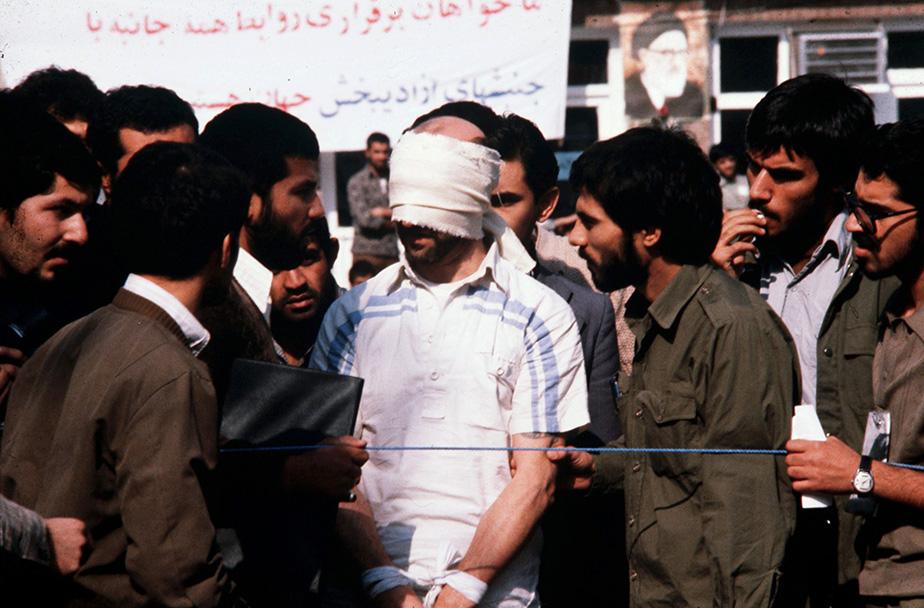
How Iran Use Terrorism and Hostage-Taking as Tools of Diplomacy
In the realm of global politics, the efficacy of a nation’s diplomacy is commonly assessed through measures such as negotiation skills, peaceful conflict resolution, and international cooperation. However, Iran’s regime has forged an unorthodox path, intertwining diplomacy with a dark underbelly of terrorism and hostage-taking. This dual-faced approach not only challenges established norms of international discourse but also raises profound concerns about the regime’s intentions and impact on regional stability.
Unlike conventional diplomatic efforts, where skillful negotiators aim to find common ground, Iran’s strategy appears rooted in unsettling actions that serve its own interests. This strategy is perhaps most evident in the regime’s use of terrorism as a form of leverage. Instead of engaging in earnest dialogue, Iran’s regime has resorted to sowing seeds of instability by supporting extremist groups, often at odds with the principles of peaceful coexistence.
Furthermore, the practice of hostage-taking has emerged as a disquieting hallmark of Iran’s diplomatic playbook. Hostages are treated as pawns, manipulated to advance political agendas rather than as individuals deserving of protection and human rights. This method of coercion not only strains Iran’s relations with other nations but also underscores a troubling lack of respect for the sanctity of human life.
The recent case of the regime’s interaction with South Korea exemplifies this unnerving blend of tactics. As frozen assets were released, the terms and conditions attached revealed a pattern of Iran using hostages as bargaining chips to receive money. This raises concerns about the broader implications of engaging with a regime that seemingly operates on a quid pro quo basis, blurring the lines between diplomacy and manipulation.
While Iran’s regime may argue that such measures are necessitated by its geopolitical predicaments, the international community remains wary of the long-term consequences of this approach. The intertwining of diplomacy with terrorism and hostage-taking not only tarnishes Iran’s standing on the global stage but also presents a pressing challenge to the principles of peaceful and transparent international relations.
Jalal Mahmoodzadeh, a regime’s MP from Mahabad, assesses the regime’s foreign minister Hossein Amir-Abdollahian’s diplomatic tenure, asserting, “Mr. Raisi’s government has exhibited feeble diplomacy, particularly under the purview of Mr. Amir Abdollahian. He ranks as the least effective foreign minister in the history of the Islamic Republic in terms of diplomatic prowess.”
Assertive diplomacy does not align with the tenets of honor in international relations. The narrative surrounding the release of frozen assets illustrates a manifestation of hostage diplomacy. Despite appeasing actions from the West and concessions granted to the regime, only six billion dollars out of the seven billion dollars frozen in South Korean banks will be repatriated. However, this isn’t a liquid transfer; rather, the funds are held within a Qatari bank account. The regime can earmark this money for humanitarian essentials like food and medicine, exempt from sanctions.
Mahmoudzadeh remarks, “Recovering seven billion dollars in the form of a third-country deposit, coupled with indemnities Iran must pay, underscores a lack of respect and honorable diplomacy. It’s disheartening that the government lacks insight into the nation’s pressing needs, resulting in an inability to allocate these funds effectively.”
Mahmoudzadeh, criticizing policies based on fundamentalism and terrorism—dubbed “extremism”—deems them imprudent. He notes, “Embracing extremism leads to international challenges, amplifying woes such as inflation, plummeting currency value, and unemployment. Regrettably, the burden of these imprudent choices falls on ordinary citizens.”
It’s unrealistic to expect honorable conduct from a diplomat who ascended through interrogation and torture, executing policies akin to those of a president who himself is marked with gross human rights violations and the execution of more than 30,000 political prisoners in the infamous days of the 1988 summer. The present plight of Iran’s oppressed citizens stems from policies bereft of sound diplomacy. Diplomats are selected from the ranks of interrogators and tormentors, perpetuating a stance of submission and feebleness.
This trajectory isn’t unfounded. The regime’s supreme leader Ali Khamenei had previously rejected alignment with Saudi Arabia. However, witnessing the erosion of his governance, he extended an olive branch to the “Super rich government of the region.” Such behavior typifies a government lacking political legitimacy, adapting to circumstances. Trapped in the throes of upheaval, it extends a warm welcome to the same entities which it had attacked its embassies and targeted its oil facility Aramco not long ago.
Source » irannewsupdate





